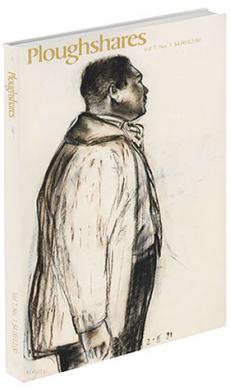The Mind Afoot: rev. of Classic Ballroom Dances by Charles Simic
There is language and there are languages. Our obsession with translations from languages few of us can read with any cultural comprehension may be leading us away from the traditional connotative values of English into a Peter Pan world of raw and too often merely clever imagery. But for Charles Simic the encounter with a language and a poet alien to most of us has been decisive and healthy. From Vasco Popa, Simic has learned a tone and strategy unfamiliar to English and American poetry. Simic's best-known poems, like "Table," "Fork," "Knife," and "The Bird," present objects that seem at once too innocent and too self-realized to be products of the old Adamic vision. Merwin's more topographical vision is also a presence in Simic's poems, somewhat more so in his new collection,
Classic Ballroom Dances (Brazillier, $6.95). This book features a number of fine poems in which the speaker himself assumes something of the innocence and dramatic autonomy of the spoon or knife of the earlier work. In "Prodigy" the metaphor of chess effectively frames a series of childhood reminisences, brutal and frightening war images. The tone is matter-of-fact. "Cousins" look "worried," but not the speaker, who takes his violent childhood calmly as a game of chess, in which "the masters play blindfolded,/ the great ones on several boards/ at the same time."
"Green Lampshade" unexpectedly recalls Robert Lowell in its evocation of the dead father:
My father's checking out
a little volume
the size of a breviary.I know I'm much older than he.
I have gray hairs,
wear a shabby overcoat. . .
Such a confrontation of an imagined landscape with a "real" self is not new in Simic's work, but it is fresher and more fully realized in this book. The more Popa-like Simic still functions effectively in poems like "Note Slipped Under a Door," or "Nowhere," but the poems in which Simic's first-person speaker unabashedly occupies the center of the scene are stronger and surer than most of his previous work. This speaker is not always a
dramatis persona per se, but is often a commentator — offhand, offstage, as in "Like Whipoorwills," or "My Little Utopia."
Still, in these poems the presence of the self calls attention to the central problem: the way something needs to be seen. To perceive the "Nowhere" where "No lives," where "its sky has no stars" demands not a Surreal tizzy but an openness to language and vision and the possibilities of aesthetic accomplishment in their free interplay. This willingness to experience imaginative vision and voice is the primary subject of Simic's poems, but he is most successful when he invokes a dramatic self to anchor his created world in a world of experience in which his readers can find themselves.

